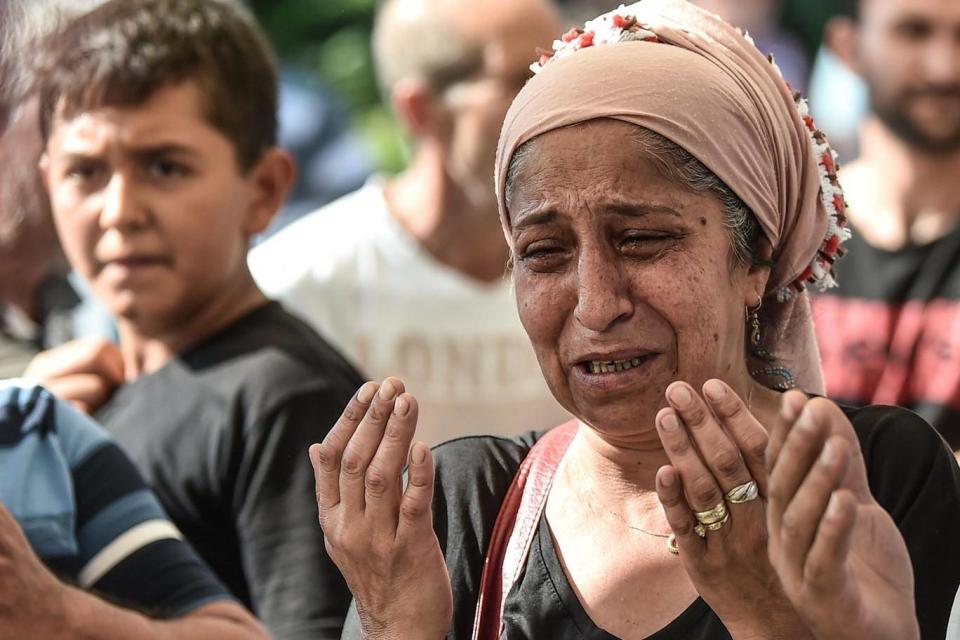Turkey: Deadly train crash symbolises collapse of civil society under Erdogan, say critics
Last Sunday afternoon, a train left the Turkish town of Edirne, near the border with Greece, headed for Istanbul.
Around two hours into the four-hour journey, 24 people were killed and another 73 injured when five of its six carriages came off the tracks.
Heavy rain and landslides in the area, as well as the pressure of other trains which used the route earlier in the day, caused “extraordinary swelling” under the tracks, transport minister Ahmet Arslan said. Initially, authorities said the death toll stood at 10.
A reporting gag on the incident, however, meant most Turks were left in the dark about the fatal accident, uncertain about the extent of the tragedy – and who or what was to blame.
Critics believe the accident and its aftermath say a lot about the new Turkey, where public services and the rule of law are slowly eroding as the country’s politics slide backwards.
Turkish social media has lit up in the last week with people who say the incident was both foreseeable and preventable. Public sector cost cutting means route inspector jobs were eliminated five years ago, and experts from a Turkish engineering union have issued a statement claiming a drainage system was incorrectly built.
The same day as the train accident in the northwest, Turkish president Recep Tayyip Erdogan fired more than 18,000 police officers, soldiers and academics for alleged terrorism links, bringing the total number of public sector workers removed from their posts in the last two years to around 150,000 people.
More than 50,000 remain in prison facing allegations of involvement in the failed 2016 military coup which led to Turkey’s current state of emergency.

The move underscores the widening gulf between his ruling AK party and the Turkish public: even Erdogan’s supporters are starting to feel the crippling effects of his government purges, which have had particularly debilitating effects on Turkey’s health and education systems and suffocated Turkey’s media and political opposition.
While he was returned to a new five-year-term as president on Monday after last month’s elections granted him a wide range of new executive powers, the AKP lost 7 per cent of the vote compared to the 2015 results.
“The Turkish government has begun pushing on capacity, building mega hospitals and new-style universities, with little to no appreciation or focus on quality of service or how important proper management and professional expertise are,” said Fadi Hakura, an associate fellow at London’s Chatham House.
“Healthy and safety has basically gone out of the window. More and more construction workers are dying. In the private sector there are fewer opportunities and academics, too, are leaving, creating a brain drain.

“It will take some time for the full effects to be felt, but in the meantime it’s only going to get worse. Erdogan or his party have been in power for 16 years and they are only become more isolated, singular-minded, and less open to criticism.”
Mr Erdogan is supposed to fulfil an election promise by ending Turkey’s two-year-old state of emergency on 18 July, largely because he now personally wields greater executive power thanks to last year’s referendum on the constitution.
Its legacy is frightening, however: according to Amnesty International, criminal investigations have been opened against a staggering 150,000 people suspected of links to the PKK or exiled cleric Fethullah Gulen, whom the state says masterminded the failed coup.
A quarter of the judiciary and hundreds of academics have been arbitrarily dismissed from their positions and 100 reporters are in prison, making Turkey the world’s number one jailer of journalists.
Even more so than the systematic breakdown of civil society, however, ordinary citizens worry most about the state of the Turkish economy.
The lira has plummeted against the US dollar and the euro and inflation is now in double digits, greatly reducing Turks’ purchasing power.
The recent consumption and infrastructure projects boom are fuelled by credit; major conglomerates such as Turk Telecom have defaulted on $4bn in foreign loans and food company Yildiz is negotiating terms with foreign bond owners.
The politicisation of the central bank and regulatory bodies has contributed to the deteriorating economy, said Mr Hakura, who believes an economic crash is now inevitable.
“Erdogan is obsessed with growth, but the Turkish economy can’t sustain it,” he said.
“Our economy is like a mid-sized car, say an Audi. Erdogan wants a Ferrari. He can play with the engine and the fuel all he wants, but it is going to burn out eventually.”
An event as catastrophic as an economic crash could be the catalyst that finally turns popular opinion decisively against Erdogan.
“Either way, though,” Mr Hakura added, “Things are going to get worse in Turkey before they get better.”

 Yahoo News
Yahoo News 